2020 Nonprofit Employment Report
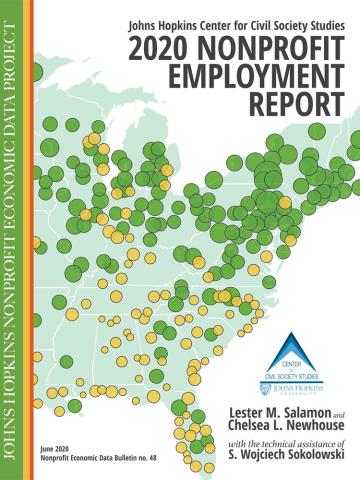
This report examines the nonprofit sector's workforce and contributions to the economy.

This report examines the nonprofit sector's workforce and contributions to the economy.
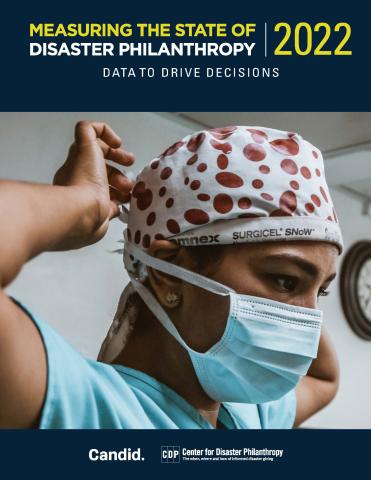
As the world continues to recover from the COVID-19 pandemic, while also facing the effects of climate change, what lessons can we take from the philanthropic response to disasters in 2020?
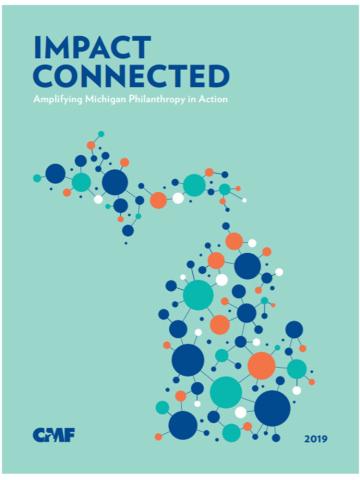
CMF released “Impact Connected” as a new publication in December 2019. It celebrates Michigan philanthropy in action – IMPACT – and the powerful results that abound when united - CONNECTED. The 2019 issue features stories of CMF members in four unique journeys:
This guide lifts up various potential scenarios centered on the COVID-19 crisis, applying a racial equity lens to help inform the sector’s scenario planning efforts and future thinking.
With support from The C.S. Mott Foundation, the American Youth Policy Forum (AYPF) investigated and documented pathways into postsecondary education and the workforce for older, vulnerable youth in Michigan with the goal of providing information to create a more robust dialogue amongst key state-level stakeholders.
It is imperative that Michigan’s advocates, policymakers, and leaders continue to build and sustain a robust pipeline to long-term success that includes a range of on-ramps for the Opportunity Youth population.
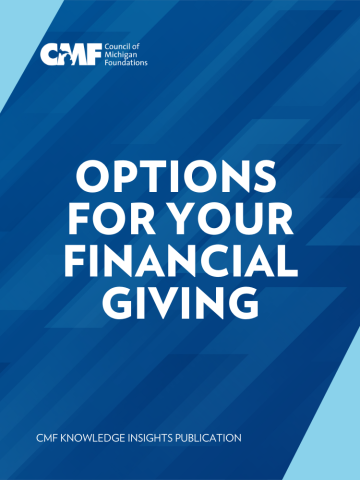
Individuals, families and companies regularly reach out to CMF to learn how they can give back to their community through philanthropy. This typically takes one of five forms, known as the “Five Ts” of philanthropy: giving back with time (volunteering, active engagement), talent (expertise), ties (connection making), testimony (advocacy) and treasure (making a financial contribution).
This resource focuses on four financial contribution pathways available to individuals and families, each with important distinctions:
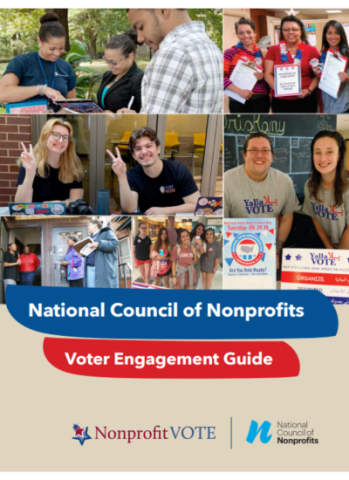
The National Council of Nonprofits has created a nonpartisan Voter Engagement Guide, which provides a roadmap of permitted nonpartisan activities and highlights how charitable nonprofits can effectively engage in elections on a nonpartisan basis, leverage their networks for greater impact and build relationships with elected officials.
The 2018 U.S. Trust Study of High Net Worth Philanthropy examines the giving patterns, priorities, and attitudes of America’s wealthiest households for the year 2017. This latest research study is the seventh in this series of studies and was once again written and researched by the Indiana University Lilly Family School of Philanthropy in partnership with U.S. Trust.
To inform longitudinal tracking of high net worth philanthropic activity, several areas analyzed in this study — giving patterns, perceptions, motivations, decision-making, strategies, values, traditions, volunteering, and demographic dimensions — build on those examined in the previous studies in this series. In addition, the current study presents new areas of research in order to gain a deeper understanding of the giving patterns of America’s high net worth households.

Recognizing that we can achieve more working together than acting alone, there is increasing interest among private and public sector funders, nonprofits, community organizations, and corporations alike to find ways to effectively align resources to grow impact.
The National Network of Fiscal Sponsors (NNFS) promotes the understanding and professional practice of fiscal sponsorship. The NNFS is led by a Steering Committee comprised of fiscal sponsors from across the country. The website includes best practices, guidelines for funders, resources for learning and more.